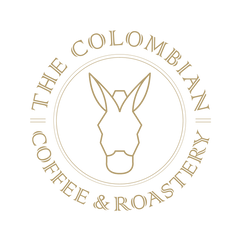The Next Generation of Coffee Producers

The Next Generation of Coffee Producers: Meet Jorge Luis Eraso from Nariño, Colombia
One of the most meaningful parts of visiting Colombia is connecting face-to-face with the people behind the coffees we serve. On our last trip, Santiago met Jorge Luis Eraso and his father, Luis Alberto, in Nariño — you might recognize Jorge as the man in the yellow shirt in the photos we’ll be sharing soon. Santiago was immediately struck by Jorge’s attention to detail and his deep passion for quality. Jorge represents the new generation of coffee producers who are pushing Colombian coffee forward — honoring tradition while embracing innovation.

Jorge Luis Eraso.
Here’s Jorge’s story, in his own words:
“Hello, my name is Jorge Luis Eraso Ascuntar, I’m 35 years old, and my whole life, together with my siblings Ruby and Fabian, I’ve been surrounded by coffee — first as a farm worker and now as a producer. But it was in 2017 that I began to dedicate myself to it more seriously, together with my parents Luis Alberto and Rocío, when I started working with the Cooperative of Coffee Growers of Western Nariño.
I am a father and husband to my wonderful wife Dayana and my daughter Luisa María — who have supported me throughout this journey of growing as a coffee farmer.
Our farm is called Las Huertas, located in the San Juan sector, in the Casabuy township, municipality of Chachagüí, Nariño, Colombia, at about 2,200 meters above sea level and surrounded by lush vegetation. It has a total area of 5 hectares, with 2 hectares planted in coffee of various varieties such as Castillo, Gesha, Típica, and Cenicafé 1, though the most predominant are Caturra (40%) and Yellow Colombia (25%). Its proximity to the Pasto River and the Galeras Volcano provides an excellent microclimate for coffee cultivation.
Due to difficult access, the coffee must be transported by mule, and we carry out the processing at my father’s farm to better control each step — especially for Natural Process coffees, which require more care and continuous monitoring during fermentation.
Most of our coffee is washed using traditional fermentation, as has been done for generations in the small farms of this region. Since joining the cooperative, we’ve begun experimenting with new methods — fruit-forward washed coffees, extended fermentations, honeys, and especially naturals. In my opinion, the natural process is challenging, but it promotes sustainability in terms of natural resources, pollution reduction, and economic viability — all of which are crucial today.
The harvest is done by our family and a few local neighbors who help every year. About 70% of the pickers are women, as the work requires delicacy to select only the ripe cherries. Fermentation is done in tanks or GrainPro bags, depending on the type of coffee. Drying is done in the sun and in greenhouses, and the coffee is stored in fique sacks and GrainPro bags.
As in most small family farms, we also raise guinea pigs, pigs, and chickens for our own consumption. They also provide materials for composting organic fertilizer, which we use for planting and fertilizing the coffee trees.
There’s much more that could be said, as every farmer has a different story, but I’ll end by saying that we always strive to do our best so that our customers are satisfied with the coffee that reaches their shops.”
Jorge's father.
From the rugged hillsides of Nariño to your cup, Jorge’s dedication is felt in every sip. His approach blends tradition with curiosity — a commitment to sustainability, experimentation, and family. We’re proud to share his coffee and his story with you.
Stay tuned for more photos from our visit and updates on the new lot from Finca Las Huertas — a taste of Nariño’s future, grown with care and heart.
Purchase a bag of Jorge's coffee HERE.









